Description: War Thunder is a next generation military MMO game dedicated to...


Flax is a beautiful, and most importantly, useful plant crop. In addition to being used in various industries of light and food industries, found wide application in medicine in the form of decoctions, ointments, lotions. All parts of a beneficial plant are used.
Flaxseed contains many nutrients and especially fatty acids. Useful properties are determined by its unique composition, among which it is worth highlighting natural hormones-phytoestrogens and fiber.
In addition, the structure of such a useful product as flax seeds contains various trace elements, amino acids, gluten, vitamins and minerals. Therefore, this tool is often used in traditional medicine not only for cosmetic purposes, but also for the treatment of many diseases.
The effectiveness of treatment depends on how correctly the preparation of flax seed for use and its intake itself take place. There are several ways to take flaxseed:
Regardless of how flaxseed is used, this product does not lose its properties: cleansing, antibacterial, sorption, softening and bactericidal. The most common method is to add them to food.
The use of flax change can be in the form of oil, tinctures, teas, compresses, mucous or ordinary decoctions. Before you start taking this remedy, you should clearly define the purpose of its use. Depending on the medical preventive measures depends on the amount and scheme of its reception.

With pathologies of the digestive tract. A decoction is prepared: 10 g of the seed is poured with a glass of boiling water and vigorously shaken for 15 minutes, filtered. The finished potion is taken warm 30 minutes before a meal. Medicinal properties are exclusively freshly prepared broth.
For diseases of cardio-vascular system. Infusion recipe: 50 g of the seed is crushed in a blender and poured with 200 ml of boiling water, infused for 10 minutes. It is taken 50 ml three times a day before meals in a warm form.
To increase the protective activity of the body. 40 g of crushed seeds are mixed with 25 g of May honey. It is taken in 1 tsp. before every meal.
To cleanse the kidneys and Bladder should drink the infusion prepared as follows for a week every day for three doses. 25 g of seed is poured with a glass of boiling water and infused for 12 hours in a thermos.
With heel spurs. A compress is made from flax seed, which is boiled for 15 minutes in milk, preferably homemade. Applications from the medicine are applied to the affected areas of the heels at night.
With sinusitis, inhalations should be done twice a day on such a decoction. 50 g of seeds are poured into 0.5 liters of homemade milk and boiled over low heat for 10 minutes.
Flax seeds are also in great demand in the elimination of external pathologies. It qualitatively cures various dermatological diseases, eliminates wounds, cuts, burns and even abscesses. Tinctures based on them are used to irrigate the throat and various inflammations in the oral cavity.
There are many recipes for the preparation of various medicinal products, which include flax seeds. Strict adherence to the rules for the preparation and administration of such drugs guarantees fast and high-quality treatment.
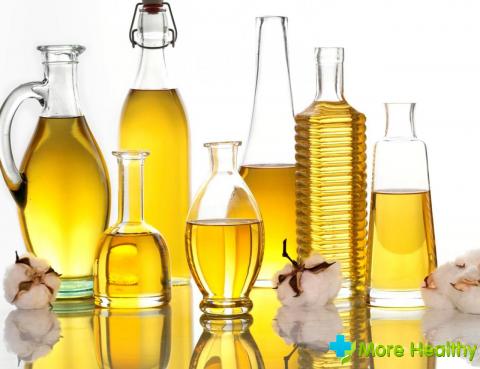
Flax seeds are used as a natural cosmetic product for the care of the skin of the face, body, nails, and hair. Flaxseed oil is especially popular on the basis of which creams and moisturizing lotions are made, as well as various hair care products.
In addition to professional products based on linseed oil, you can prepare many different products:
Linseed oil belongs to the easily accessible natural remedies which are freely available. It is a unique source of nutrients for skin, hair and nails. The result of the systematic application of a full course of cosmetic procedures based on flax oil guarantees the high efficiency of its use.
While watching the video, you will learn about flaxseed oil.
Today there are many various ways the use of flax seeds, each of which has its own therapeutic value. The correct use of this remedy will allow you to restore your health and improve your health in the shortest possible time. appearance without much difficulty.
What are the benefits and harms of flax seed: for men, women and children
Flax seeds appear on the table modern man not only as an exotic food supplement. They are used in raw form, as well as in the form of infusions or decoctions. Do flax seeds have medicinal properties? This is a question often asked by people who pay a lot of attention proper nutrition, the complex of which includes flaxseeds. It will depend on how correctly they are used and whether they will benefit or harm the body.
So, the first thing you need to understand is a bunch of information about the benefits and harms of flax seed. For this it is worth:
So, flaxseed, the benefits and harms of which are contained in its features chemical composition and effects on certain organs are worth careful consideration.
Satisfying women's interest, you need to talk about the calorie content of the product and the amount of trace elements in it. There are 492 kcal per 100 g of product. At the same time, proteins contribute 85, fats - 442, and carbohydrates - 7 kcal of energy value.
The vitamins found in flax seeds include:
The composition of flax seeds contains such trace elements as: iron, magnesium, zinc, sodium, copper, etc. They allow you to maintain the balance of substances necessary for the normal functioning of all body systems.
Also, flaxseeds, the benefits and harms of which are determined by the impact on specific organs, serve as a very tasty food supplement.
The main properties of flax seed include a large amount of soluble fiber in its composition, as well as lignans.
In addition, it contains the so-called youth vitamins (E and A) and antioxidants.
Soluble fiber prevents irritation of the mucous membranes of the stomach and intestines, enveloping the inner surface of these organs with a kind of mucus. Lingan blocks the action of excess estrogen (female sex hormone), thereby preventing insomnia and swelling.
The beneficial effect of seeds extends to:
Being a natural product, as well as being used in medicine, flax seeds effectively affect many processes in the female body. They are used not only as folk medicine but also as a cosmetic product.
The phytoestrogens contained in flaxseeds eliminate the imbalance of hormones, which is a frequent guest of the body of any woman.
Their regular use also reduces the risk of breast cancer. In addition, phytoestrogens contribute to the rapid restoration of the menstrual cycle.
They are very useful for women during pregnancy, contributing to the normal development of the fetus.
The cosmetic effect of flax seeds extends to:
Achieving a full-fledged cosmetic effect of flax seeds is possible only if they are used as an external agent, and as a food supplement.
Women are interested in how flax seeds can benefit and in what cases - harm. How to take the product? is also a fairly common question. First, let's look at the weight loss effect of this "miracle supplement".
You can quickly lose weight thanks to the impressive number of useful properties of flax seeds. They contain a large amount of minerals and vitamins. In order to lose weight, a special decoction is used:
Pour 1 tablespoon of the seed into the pan, pour boiling water and let it brew for about 2 hours. The decoction is taken ½ cup up to 3 times a day. The course lasts about 10 days.
B group vitamins provide a healthy state of nerve cells, being a sorbent (absorber of harmful substances) that removes radionuclides from the body. Due to this property, flax seeds are used in the treatment of radiation sickness. Also this useful product able to relieve tension, reduce swelling and is recommended for use in the presence of mental disorders.
Flax seeds are necessary for the full functioning of the nervous system. They are rich in lecithin. In this regard, there are no problems with peptic ulcer, because the increase in acidity is regulated by the autonomic nervous system.
To lower the level of sugar in the blood, a special decoction is prepared. Its preparation begins with mixing equal parts of bean pods, oat straw and blueberry leaves. Two tablespoons of this mixture is poured into 400 ml of boiling water and simmered over low heat for about 10 minutes. Then part of the flax seed is added. After 30 minutes of infusion, the decoction is decanted and can be taken three times a day for half a cup.
Heart problems are eliminated due to the content of omega-3 acid in flaxseeds. It contributes to the reduction blood pressure and cholesterol levels. The supplement is also used for heart attacks and atherosclerosis. In addition, the indication for the use of seeds is the development oncological diseases.
Flax seeds are very useful for people with diseases of the liver, kidneys, and gastrointestinal intestinal tract. When eating this product, the risk of thrombosis, cardiovascular and cancer. Also, with the regular addition of seeds to food, the efficiency of the immune system increases.
In the presence of problems with digestion, flax helps to improve intestinal motility, and also has a beneficial effect on stabilizing blood sugar levels. In addition, this product has an antibacterial and rejuvenating effect on the body. Can be used as a laxative and expectorant.
Flax seeds, if used improperly, can also greatly harm the human body, as well as help. And the first category of people who should be wary of this product are allergy sufferers. You may experience a reaction to the seeds if you have an intolerance to nuts, peanuts, and egg whites.
Also gain negative symptoms will manifest itself with flatulence. It is also better for pregnant women to refrain from eating flax seeds in order to avoid premature labor.
An undesirable reaction to the product will be with endometriosis (gynecological disease) and fibroma (benign tumor).
The choleretic properties of flax and all its processed products can aggravate the condition of people suffering from cholelithiasis, JVP, cholecystitis, and the presence of kidney stones.
The following cases are contraindications for taking flax:
For children, the use of seeds can begin only from 3 years of age.
Exacerbation of colitis, pancreatitis (inflammation of the pancreas) and cholecystitis (inflammation of the gallbladder) is a serious contraindication to the use of flax seeds. The strong choleretic effect of the product can also provoke the movement of kidney stones, which is highly undesirable in this disease. Prostatitis, uterine fibroids, endometriosis in men are also pathologies incompatible with taking flax.
Taking the supplement without drinking plenty of water can lead to severe abdominal discomfort. That effect will show itself in the liver. Increased flatulence may also occur.
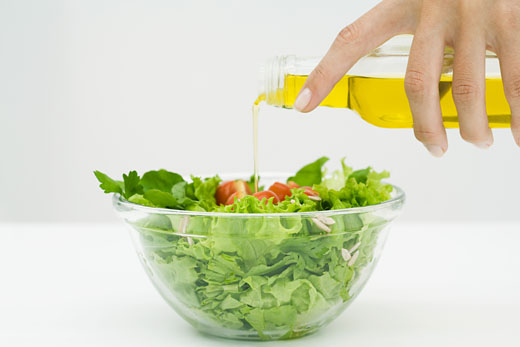 The benefits and harms of flax seeds depend on how they are eaten. ground flaxseeds are taken with plenty of water.
The benefits and harms of flax seeds depend on how they are eaten. ground flaxseeds are taken with plenty of water.
The grains contain a lot of oil, which quickly oxidizes in air, so it is better to use them immediately after cooking.
An excellent option for eating seeds is to add them to porridge, such as oatmeal. They are also combined with salads, sour-milk products, jam or honey.
Prophylactic use of this supplement should be limited to 5 g per day. In the treatment, it is used 2 tablespoons per day - in the morning and in the evening. Also, the intake of flaxseeds should be supplemented with a large amount of fluids drunk. Children under three years of age the product is contraindicated.
The pharmaceutical company Evalar is the manufacturer of the medicinal product "Flax Seeds" - a source of Omega 3. The content of this acid in flax seeds exceeds fish oil by 3 times. Dried grains are sold in bags of 5 g. This is the daily dose of the medicine. The drug contributes to:
Also, the seeds are sold in a convenient form and have a pleasant taste. Adults and children over 14 years of age take the medicine once a day for a month. It is not recommended to use the drug during breastfeeding, pregnancy, as well as in case of individual intolerance to some of its components.
The benefits and harms of flaxseed can only be assessed by considering its effects on certain functions. human body. Also, an important factor in its effectiveness is the correct use: compliance with the diet and the amount of dosage taken.
1 405 985
Flax translated from Latin means "the most useful" and for good reason. It has found application in both industrial and medical fields, and even in cosmetology. The stems of this plant are processed into fibers from which fabric is produced. And flax seeds are used as the most valuable nutritional supplement, which is also considered a universal remedy for almost all diseases. So, flax seeds and their benefits and harms, and how to take flax seeds?
The main beneficial properties of flax seeds are due to their unique composition.
In addition to the above components, flax seeds also contain many vitamins and other useful trace elements (“youth vitamins” - A and E, as well as B, F, potassium, magnesium, manganese, antioxidants, amino acids, etc.).
Contraindications
Experts disagree on the safe amount of flaxseed to consume. Some argue that the daily dose should not exceed 25 g, others - 50 g. In any case, the harm of flax seeds lies in their abuse. It is believed that to provide the body with all the necessary nutrients, 20-25 g of seeds per day is enough (in the usual, ground form or as a decoction). It is contraindicated to take flax seeds:
Flax seeds can cause an allergic reaction.
At first, some people also experience bloating, flatulence. In this case, the intake of the product should be minimized, gradually increasing the number of seeds.
Now you know the benefits and harms of flax seeds, let's take a look at how to take flax seeds.
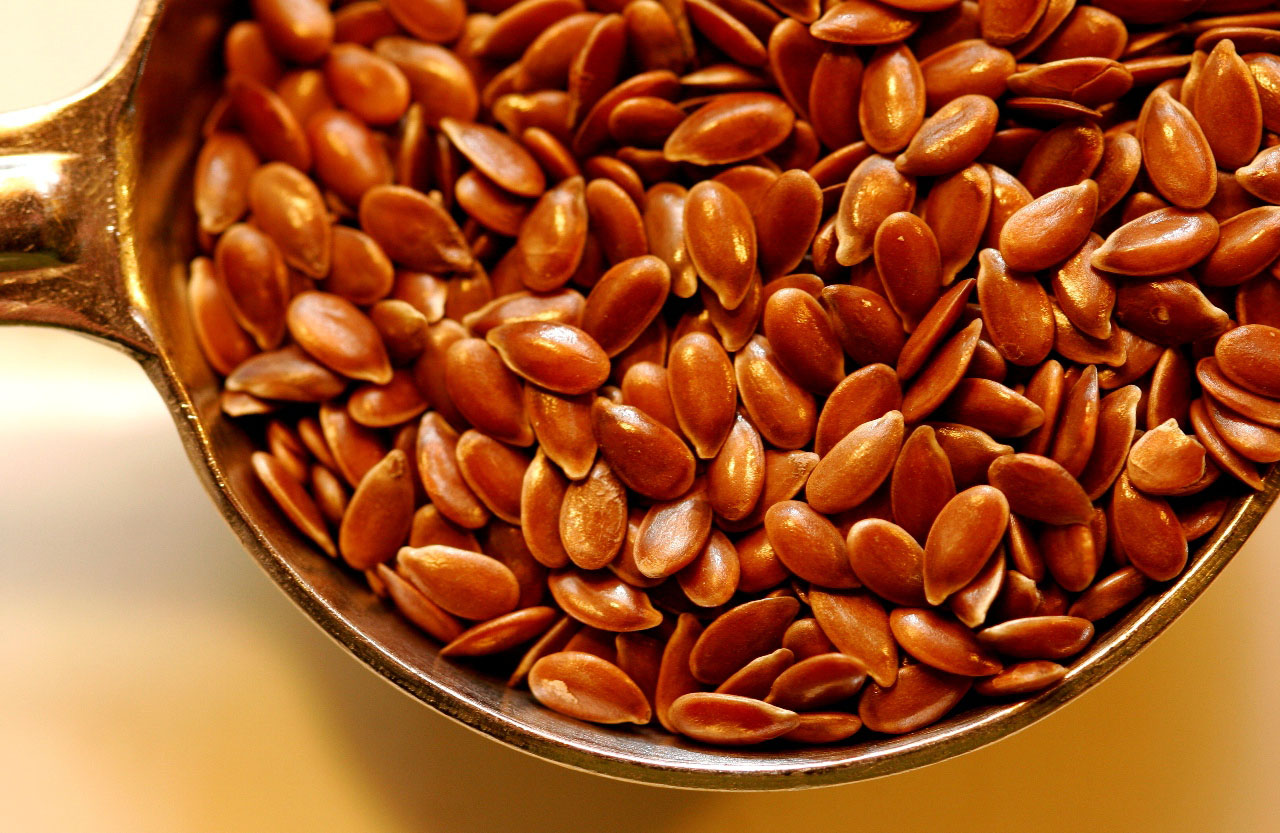
Flax seeds are taken inside crushed, diluted with a significant amount of liquid. Important point: the seeds are crushed immediately before use, because. ground seed quickly oxidizes in the open air and loses its beneficial qualities. You can also mix seeds with honey in equal amounts, or use as a food additive in dishes (homemade pastries, cereals, salads) and fermented milk products.
The answer to the question "How to take flax seed?" depends on the purpose for which you are going to do it.
For prevention, 5 g of flax seeds per day is enough, for treatment - up to 50 g. Treatment with flax seeds can last from one to several months.
Flax seeds in the amount of a teaspoon are poured with boiling water (100 ml) and shaken for 15 minutes. Then filter and consume the resulting substance in the form of heat for half an hour before each meal. It is useful to take mucus prepared in this way for peptic ulcer of the stomach and duodenum, dysbacteriosis, gastritis, chronic colitis and gastric catarrh, as well as for cystitis, bronchitis and cough, since it has an enveloping effect, softens and soothes irritated mucous membranes. It is necessary to prepare each new serving immediately before use.
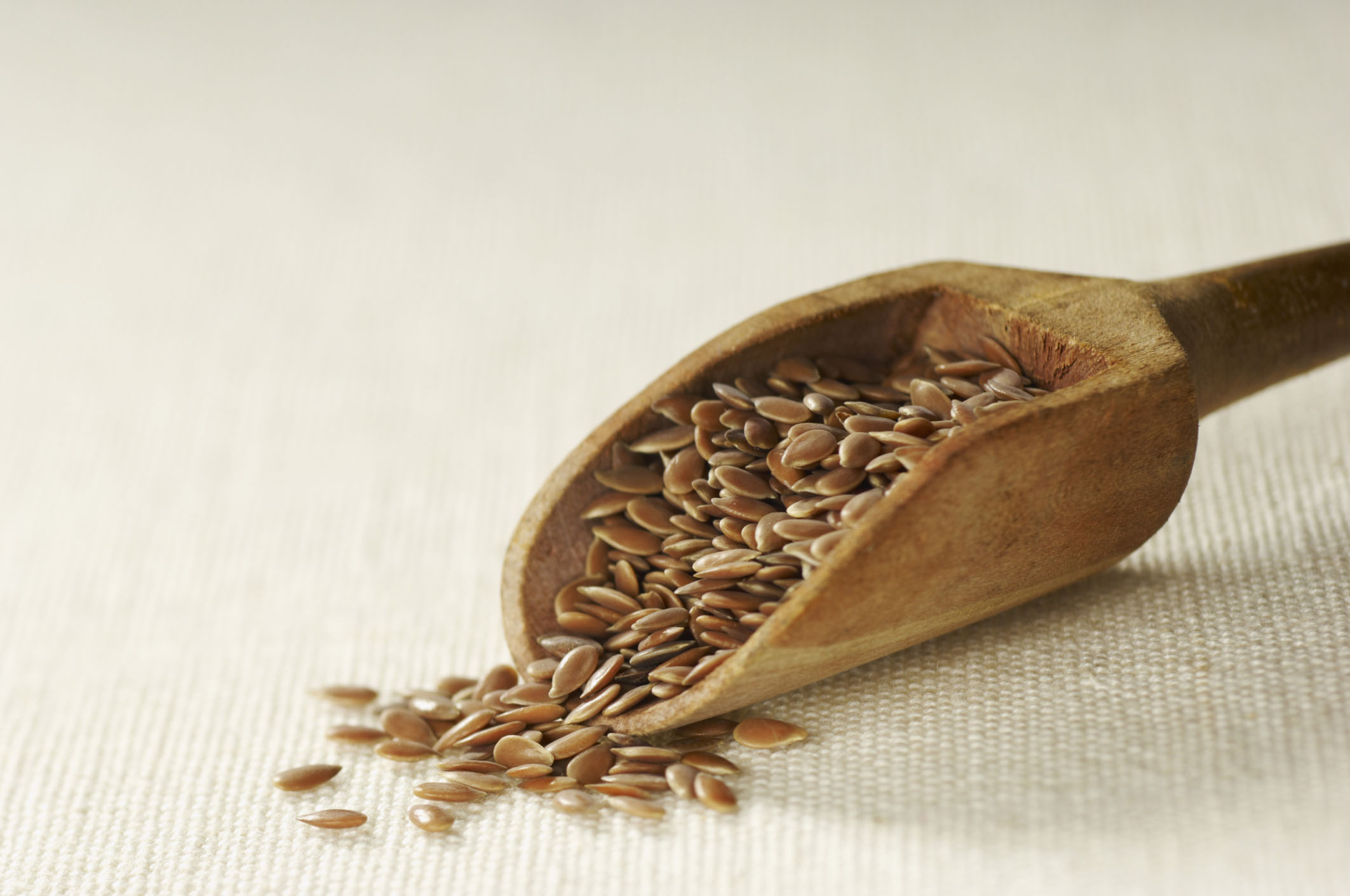
Pour a tablespoon of seeds with boiling water (2 cups), leave for 1 hour to infuse the mixture, then strain it. The infusion is taken in the morning on an empty stomach and before going to bed in a glass.
For the prevention and treatment of diseases of the cardiovascular system, the following infusion is taken inside: it is necessary to grind 2 tablespoons in a blender. seeds, pour hot water (200 ml) and leave to infuse for 10 minutes.
Grind 3 tsp. flax seeds, add a teaspoon of honey. Take 1-2 tsp. up to three times a day. You can replace it by adding it to food (once a day). The recommended norm for children is 1-2 tbsp. oils, for adults - 1-2 tbsp.
This recipe helps to cleanse the kidneys and bladder, taken within a week. A tablespoon of seeds is poured with boiling water (one glass) and insisted in a thermos. It is best to do this before going to bed, then by morning the "kissel" will be ready for use. Dilute it with a glass of hot water. The resulting amount of jelly is drunk during the day for 3 times.
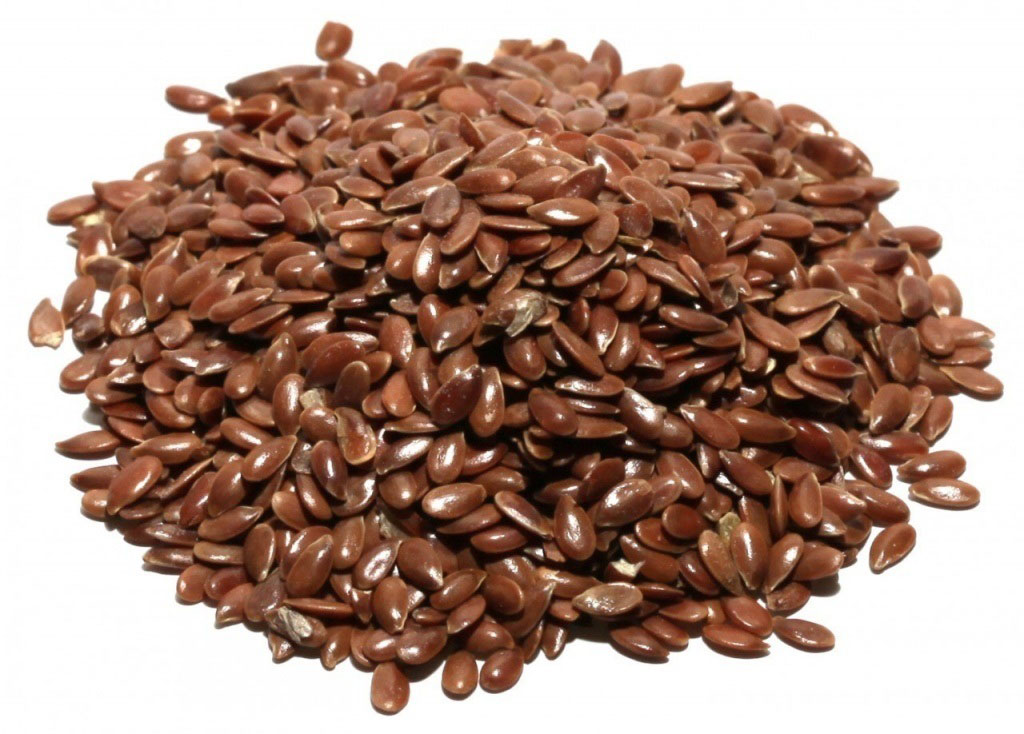
From heel spurs, compresses are made from flax seeds boiled in milk.
Flax seeds (2 tsp) are poured into 0.5 liters of water and boiled over low heat for 15 minutes, then left to infuse for 10 minutes. Pour the broth into a glass container (jar, bottle), close the lid and shake well for 5 minutes, then filter. This remedy should be taken in a tablespoon several times a day (4-5).
Pour 2 tablespoons of seeds with half a liter of milk and boil over low heat for 10 minutes, then inhale the steam until the broth cools completely.
Pour flax seeds (1-3 tsp) with a glass of cold water (boiled or purified) and leave for 2-3 hours. Stir the mixture periodically. Take at night, before bed.
Summarize. So, flax seeds - good or bad? I think the answer is obvious. The main thing is to take flax seed correctly, follow the indications, and then there will be one continuous benefit from these miraculous seeds. Also for cosmetic purposes it is useful to do
To Obish
Contraindications: colitis. Next Recipe from flax from Colitis .... decide already)
Vladimir Laktionov
The root of the word "flax" is not Latin, but Proto-Slavic: "lннъ". The word itself comes from "to cling" - to fit snugly, to envelop. Thus, from the very beginning, the article is distrustful ... I'll go look somewhere else ...
- one of ancient cultures, from time immemorial faithfully served man. The cultivation of flax on a global scale began in the era of the birth of weaving, and with the development of medicine, the culture has become even more importance due to the medicinal properties of flaxseed. In our age of synthetic fabrics, the importance of flax as a spinning crop is somewhat leveled, although natural fabrics are still in demand today. But the medicinal and nutritional value of the culture has increased many times over.
Flax seeds are pharmacopoeial drugs, and scientific medicine does not hesitate to use them to treat a group of diseases. The same applies to alternative medicine.
In addition to flax, there are several other species of this plant in nature, for example, Austrian flax, l. yellow, l. thin-leaved, l. woolly. The listed species have no industrial value, but are often grown by amateurs in flower beds. And the seeds of all types of flax are not inferior in medicinal properties to their cultural relative.
Previously, the therapeutic use of flax seeds was due to the presence of plant fiber and mucus in their composition, which predetermined the scope of therapeutic use - the treatment of diseases of the gastrointestinal tract.
Large-scale study medicinal properties flaxseed began relatively recently, and scientific experiments are associated with the search for effective drugs to combat the worst enemy of the human body - cancer.
The vitamin and protein composition of flaxseed is amazing: about 20 types of protein, including those containing essential amino acids, and the same amount of vitamins (plus the same number of micro and macro elements).
As a result of scientific research, a group of polyunsaturated acids, the so-called omega-3, was found in flax seeds, in general, about 40 types of fatty acids are included in the seeds. Of particular interest to oncologists is the huge content of lignans (derivatives of lignin acids) in flaxseed, and in this respect, even sesame cannot be compared.
On the Internet, you can often find warnings against the use of flaxseed during pregnancy, inflammation of the prostate, fibrocystic formations in the female genital area, etc. Official sources do not give any indication on this matter, therefore, for the most part, such warnings are fiction. However, treatment with flaxseed preparations, as well as other drugs plant origin, it is desirable to carry out after medical consultations.
The only scientifically confirmed contraindication, given the laxative effect of flaxseed, is acute diarrhea (diarrhea).
Flax-seed(Sem. Lini). The main preparation (rather raw materials), which can be purchased at any pharmacy, is flax seeds. Others are being prepared from it. medicines. As a laxative, flax seeds are prescribed 1 tbsp. every 2 hours. Flax seed is also used externally in the form of compresses and poultices.
Flaxseed poultices help in the treatment of burns, ulcers and inflammation of the skin tissue. They also help open boils. To prepare poultices, flax seeds are crushed, placed in rag bags and dipped in boiling water for 1-2 minutes.
Flaxseed infusion is used as a laxative. For 2 cups of boiling water - 1 tbsp. seeds. Steep for 10 minutes, shaking continuously. Take an infusion of 100 ml three times a day, preferably on an empty stomach.
Decoction. It is prescribed to improve digestive processes, in case of violations of water-salt and lipid metabolism, to facilitate defecation with inflammation of the rectum (proctitis, hemorrhoids). Take the drug on an empty stomach, by analogy with the infusion. Prepared at the rate of 2 tbsp. raw materials for 2 cups of boiling water; cook for 10 minutes, and insist the same amount.
Slime. (Muc. sem. Lini). The drug is prepared in pharmacies, and cooking at home is also acceptable. The use of mucous substances is appropriate in case of inflammatory processes, both in internal organs (for example, peptic ulcer of the stomach, duodenum and intestines, colitis), and on the surface of mucous membranes (in dentistry, in proctology) or skin. Mucus is prescribed to reduce inflammation in case of poisoning with chemical caustic substances (alkalis, acids, salts), as well as to prolong the action of others. medicines, since the enveloping properties of mucus reduce absorption, for example, in the gastric mucosa.
Linseed oil(Ol. Lini). Get "cold way". Used as a laxative, as well as for the manufacture of liniments. Flaxseed oil has nutritional value and is used in dietetics in the treatment of a wide range of diseases associated with metabolic disorders.
Linetol(linetholum). This therapeutic drug was developed by the scientific team of the former VNIHFI. Prepared by the method of ethylation of fatty acids (to obtain their ethyl esters). It is prescribed for the treatment and prevention of atherosclerotic changes. Linetol is prescribed 1 time per day (on an empty stomach), 20 ml. Treatment of atherosclerosis is quite long, so it is carried out in courses of 1 - 1.5 months, between which there is a break for several weeks (from 2 to 4). It is also possible and longer continuous use of the drug. Externally used to treat radiation injuries and burns of various origins (thermal, chemical).
Linol(Linolum). It is produced by analogues with linetol, only in this case methyl esters are obtained. Used exclusively externally.
Clinical trials of linetol have shown high efficacy in the treatment of atherosclerosis in combination with secondary diseases (atherosclerosis of the coronary arteries, angina pectoris, hypertension). Reduction of cholesterol levels under the influence of linetol (patients did not receive other drugs) was observed in more than 80% of patients. At the same time, an increase in phospholipids ("useful cholesterol") was observed in 60% of the experimental subjects.
The results of the experiments showed that the use of linetol has a positive effect on lipid-protein metabolism.
Linetol also passed clinical trial for external use (radiation injury, burns). With deep lesions of the epidermis, the most effective was the use of dressings impregnated with linetol, followed by the application of dressings with fish oil emulsion. In the case of islet rejection of the epidermis, the use of linetol without dressings is recommended (daily single application to the affected area). The technique for applying linol is similar to that for linetol.
To improve weakened immunity in a child, traditional healers recommend using a drug prepared from flaxseed powder mixed with honey (for 2 tsp of powder - 1 tsp of honey). The dose is calculated for three times a day.
In diseases of the joints and rheumatic pains, traditional healers advise applying hot compresses of flaxseed to the painful area.
According to adherents of alternative medicine, flaxseed will help in some cases of diabetes. For this, a cold infusion is prepared: for 1 glass of chilled boiled water - 3 tsp. crushed raw materials. Infuse with frequent shaking for about 3 hours. Use the infusion before bedtime.
Oh high nutritional value flaxseed is eloquently evidenced by the fact that its per capita consumption in developed countries is increasing annually by geometric progression. Prevention of atherosclerosis and oncological diseases are the main goals of dietetics using flaxseed. As it turned out, regular consumption of flax seeds helps to strengthen the heart muscle and strengthen the immune system. However, no side effects were noted. Seeds can be introduced into the diet, both in whole form and in the form of a powder. Depending on the clinical background, the dosage of seeds may vary from 5 to 50 g per dose.
In ancient manuscripts, there are truly unique recipes using flaxseed. For example, Dr. Reil's pain-relieving poultices. A remedy is prepared from a mixture of crushed flax seeds (15 g) and hemlock and henbane seeds (4 g). The mixture is poured with boiling milk until the required consistency is obtained and applied in linen bags to the painful area (articular rheumatism, etc.).
References
1. Herbal medicines. Directory.
2. Private Pharmacology. M. Weisberg.
Flax has long been used in the production of yarn and dietary oil. Today, clothes made from linen fibers are popular due to their strength, wear resistance, good hygroscopicity and thermal conductivity, as well as environmental friendliness. Flaxseed oil is a dietary product rich in essential (not synthesized by the body) fatty acids. And flax seeds are used in folk medicine for mild therapy. various diseases. Today we will talk in more detail about seeds, and learn how to eat flax seeds.
Another element that is part of flaxseed and essential for the human body is potassium. It is necessary for the coordinated work of all the most important systems and organs of our body. With the help of potassium, cellular transport is realized. With a lack of potassium in the body, edema, heart rhythm disturbances, problems with the excretory system and kidneys begin. Traditionally, with a lack of potassium, it is recommended to eat bananas. But there is more of this trace element in flaxseed.
Vitamin B and lecithin, which are also part of flaxseeds, prevent the development of mental disorders and protect nerve cells from damage.

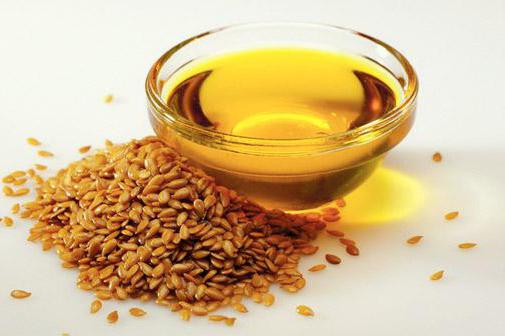
For the female body, flax seeds are of particular importance. The fact is that they contain phytoestrogens - analogues of female hormones. The use of flax seeds alleviates the negative effects of menopause and is an effective prevention of cancer of the uterus and breasts.
Let's look at the most common ways to use seeds.
With kefir
This option is suitable for those who are interested in the question of how to properly use flax seeds for weight loss. It is used as an aid in physical activity and diets. In 100 g of kefir add a teaspoon of seeds. This mixture should be consumed instead of breakfast or dinner. After the first week, you can increase the number of seeds to 2 tablespoons, and after the second - up to 3. In principle, answering the question of how to use flax seeds for weight loss, you can point to any of the recipes listed below. All of them contribute to the cleansing of the body, which steadily leads to weight loss.
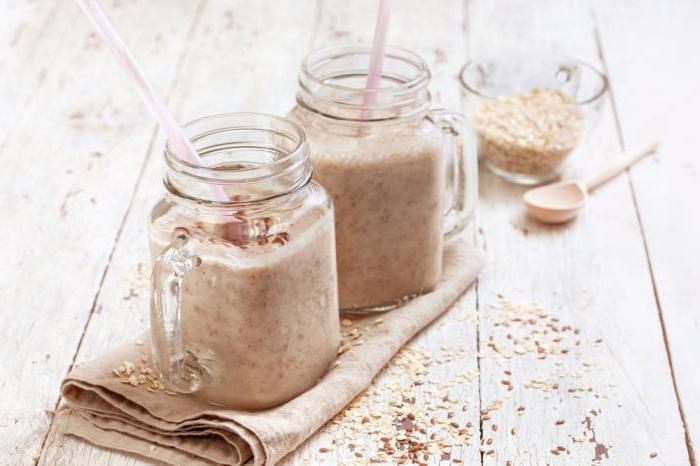
Decoction
If you are interested in how to use flaxseed to cleanse the body and skin, then this option is for you. The broth is prepared as follows: a tablespoon of seeds is poured with half a liter of boiling water and boiled for thirty minutes over low heat. After that, the broth is covered with a blanket and allowed to cool in this state. The decoction is consumed in the morning and in the evening, on an empty stomach, 250 ml each. You can add a spoonful of sour juice to it to give it a taste.
Tincture
This method helps to cleanse the intestines of toxins and restore the mucous membranes of the gastrointestinal tract. The recipe is simple: three tablespoons of seeds are poured into a thermos with a capacity of 1 liter and poured with boiling water. After three hours, the tincture should be cooled and strained into an opaque dish. The cake is squeezed out at the same time - it contains a lot of valuable substances. Tincture is consumed 150 grams half an hour before meals, for a month.
Kissel
This method will be useful for those who want to get rid of gastritis, constipation, peptic ulcer and intestinal disorders. It normalizes the state of the stomach and metabolism. The process of making jelly is also simple: pour a tablespoon of seeds with half a liter of boiling water and insist for eight hours. To speed up the process, the seeds can be pre-ground in a coffee grinder. To give the drink a pleasant taste, cinnamon, vanilla or honey is added to it. It can also be mixed with berry jelly and oatmeal. Kissel must be washed down with plenty of water. With pancreatitis in the acute stage, you can not drink it.
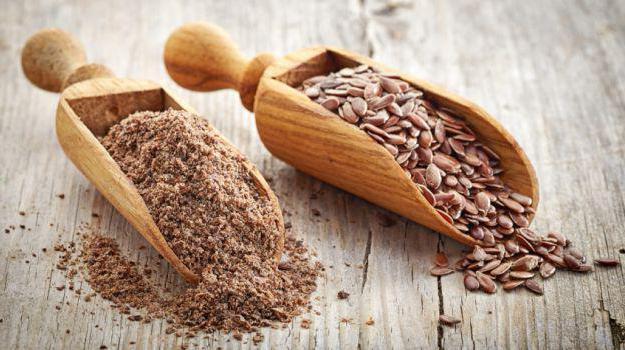
Now let's consider more specifically how to use flax seeds for certain problems.
Kissel is used in the treatment of the pancreas. Its preparation is as follows: 2 tablespoons of the seed must be crushed and pour 400 milliliters of boiling water. Then the mixture must be boiled over low heat for 10 minutes and let it brew for about an hour. Then the jelly is filtered, and honey is added if desired (no more than 2 tablespoons).
Flax helps with pancreatitis due to its astringent and anti-inflammatory properties. In addition, thanks to the fiber contained in it, the metabolism and elimination of toxins from the body is normalized. It is impossible to use flax in the acute stage of pancreatitis, as already mentioned. The same applies to gallstone disease.
Now we will learn how to use flax seeds for gastritis. For the treatment of this disease, tincture of seeds is used. To make it, you need to pour 2 tablespoons of seeds with a liter of boiling water, wrap it with a blanket (you can use a thermos) and leave to infuse overnight. Tincture is taken in 200-300 ml before meals. Flaxseed jelly and crushed seeds added to kefir also help fight the symptoms of gastritis. Flaxseed products help food pass through the stomach without irritating damaged areas.
Flaxseed is often used as a mild laxative, which, unlike strong laxatives, does not irritate the intestinal mucosa and does not disturb the balance of minerals in the body. How to use flax seeds for constipation? As part of the tincture: 100 grams of seeds per 1 liter of boiling water. And you can also take the seeds in a dry crushed form, washing them down with plenty of water. After several days of such treatment, the metabolic and cleansing processes in the intestines are normalized, and its microflora and mucous membranes are restored.
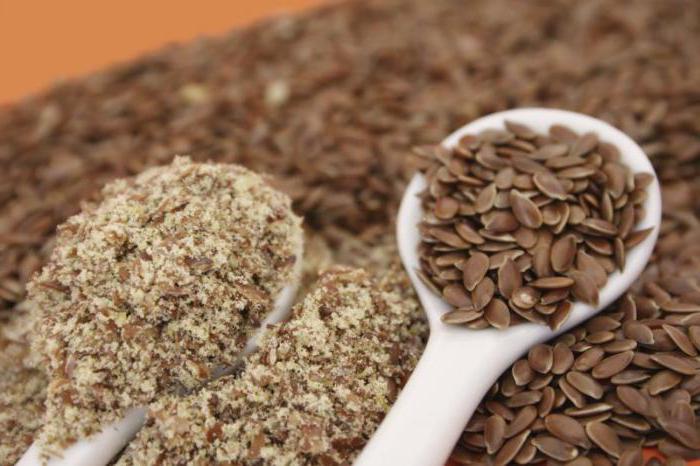
In the treatment of diabetes, flaxseed tincture is used, which should be consumed 20 minutes before meals or at bedtime. It is prepared in two ways: fast and slow. In the first case, 2 tablespoons of seeds are poured into 100 ml of boiling water and infused for several minutes. Then the tincture is brought to a volume of 250 ml with cooled boiled water. In the second - 2 teaspoons of seeds are poured with cooled water and infused for 2 hours.
Many are interested in the question of how to use flax seeds for stomach ulcers. In the treatment of peptic ulcer, products with mucus from flaxseeds are used, namely infusions (decoctions can also be used). The infusion is made as follows: 3 tablespoons of washed seeds are sent to a thermos and poured with two cups of boiling water. Immediately after this, the thermos should be shaken. The same should be done in half an hour. Take the infusion for 1-2 weeks, 100-150 ml an hour before each meal. Cooked seeds quickly lose their healing properties, so every day you need to make a new infusion.
Vegetable fiber, which is rich in flax seeds, helps to normalize the condition of the digestive tract. It removes toxins, mucus and fecal stones, absorbs toxins and poisons, and also prevents the processes of decay and serves as an excellent anthelmintic agent.
Fiber is taken along with yogurt or kefir, it is used as a breading and simply added to food. The main thing is not to exceed the daily intake of fiber (50 grams) and drink plenty of it (at least 2 liters per day). Otherwise, intestinal obstruction may occur. It is not recommended to use fiber for women during lactation, as well as for people suffering from pancreatitis, diabetes, gallstone and urolithiasis.
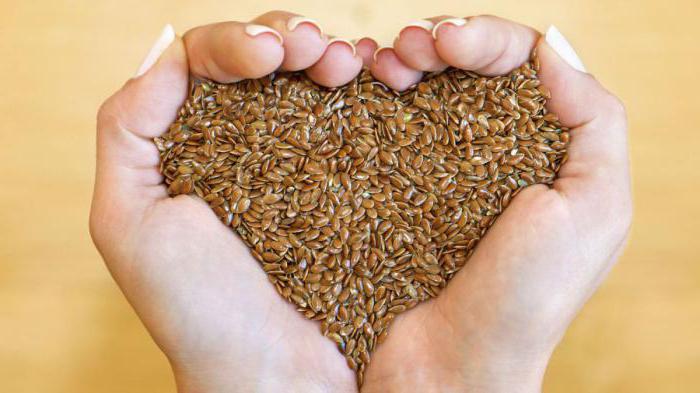
To the question "Is it possible to use flax seeds?" the answer is unequivocal - "Of course, it is possible, and even necessary!". But it is always worth remembering that the difference between medicine and poison is determined by the dose. For everything to be in order, it is worth adhering to the rules and time-tested recipes. This limitation is due to the content of cyanogenic glycosides in flaxseed (destroyed during cooking) and choleretic compounds. In addition, with an illiterate treatment regimen, bloating and flatulence may occur. It is always worth starting with a small portion of seeds, gradually increasing it to the required rate. Of course, an unequivocal contraindication is the increased sensitivity of the body to any of the components of flaxseed.
Today we have learned what flax seeds are: what are useful, how to use and what regimens to follow. Based on the information reviewed, one can definitely call flaxseed a real natural treasure that helps to solve a considerable range of human problems associated with diseases. The main thing is to remember how to properly use flax seeds so that they are beneficial.